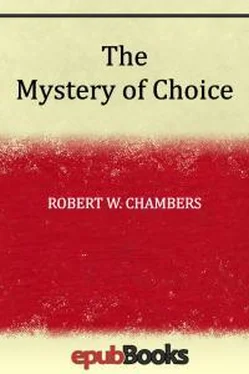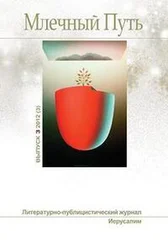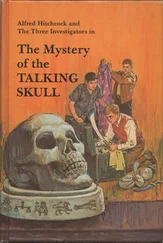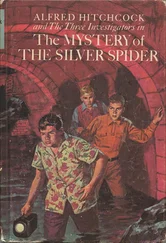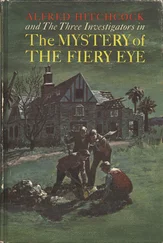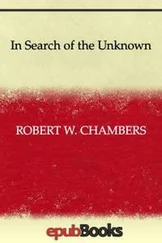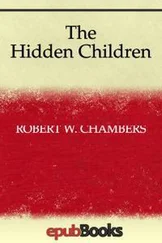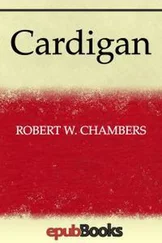Роберт Чамберс - The Mystery of Choice
Здесь есть возможность читать онлайн «Роберт Чамберс - The Mystery of Choice» весь текст электронной книги совершенно бесплатно (целиком полную версию без сокращений). В некоторых случаях можно слушать аудио, скачать через торрент в формате fb2 и присутствует краткое содержание. Год выпуска: 2017, Издательство: epubBooks Classics, Жанр: Ужасы и Мистика, на английском языке. Описание произведения, (предисловие) а так же отзывы посетителей доступны на портале библиотеки ЛибКат.
- Название:The Mystery of Choice
- Автор:
- Издательство:epubBooks Classics
- Жанр:
- Год:2017
- ISBN:нет данных
- Рейтинг книги:3 / 5. Голосов: 1
-
Избранное:Добавить в избранное
- Отзывы:
-
Ваша оценка:
- 60
- 1
- 2
- 3
- 4
- 5
The Mystery of Choice: краткое содержание, описание и аннотация
Предлагаем к чтению аннотацию, описание, краткое содержание или предисловие (зависит от того, что написал сам автор книги «The Mystery of Choice»). Если вы не нашли необходимую информацию о книге — напишите в комментариях, мы постараемся отыскать её.
The Mystery of Choice — читать онлайн бесплатно полную книгу (весь текст) целиком
Ниже представлен текст книги, разбитый по страницам. Система сохранения места последней прочитанной страницы, позволяет с удобством читать онлайн бесплатно книгу «The Mystery of Choice», без необходимости каждый раз заново искать на чём Вы остановились. Поставьте закладку, и сможете в любой момент перейти на страницу, на которой закончили чтение.
Интервал:
Закладка:
Now I perceived, after a few moments, that the young lady was frightened, and I knew I ought to say something civil. So I said, "Are there any mosquitoes here?"
"No," she replied, with a slight quiver in her voice; "I have only seen one, and it was biting somebody else."
I looked foolish; the conversation seemed so futile, and the young lady appeared to be more nervous than before. I had an impulse to say, "Do not run; I have breakfasted," for she seemed to be meditating a plunge into the breakers. What I did say was: "I did not know anybody was here. I do not intend to intrude. I come from Captain McPeek's, and I am writing an ode to the ocean." After I had said this it seemed to ring in my ears like, "I come from Table Mountain, and my name is Truthful James."
I glanced timidly at her.
"She's thinking of the same thing," said I to myself. "What an ass I must appear!"
However, the young lady seemed to be a trifle reassured. I noticed she drew a sigh of relief and looked at my shoes. She looked so long that it made me suspicious, and I also examined my shoes. They seemed to be fairly respectable.
"I—I am sorry," she said, "but would you mind not walking on the beach?"
This was sudden. I had intended to retire and leave the beach to her, but I did not fancy being driven away so abruptly.
"I was about to withdraw, madam," said I, bowing stiffly; "I beg you will pardon any inconvenience―"
"Dear me!" she cried, "you don't understand. I do not—I would not think for a moment of asking you to leave Pine Inlet. I merely ventured to request you to walk on the dunes. I am so afraid that your footprints may obliterate the impressions that my father is studying."
"Oh!" said I, looking about me as though I had been caught in the middle of a flower–bed; "really I did not notice any impressions. Impressions of what—if I may be permitted?"
"I don't know," she said, smiling a little at my awkward pose. "If you step this way in a straight line you can do no damage."
I did as she bade me. I suppose my movements resembled the gait of a wet peacock. Possibly they recalled the delicate manoeuvres of the kangaroo. Anyway, she laughed.
This seriously annoyed me. I had been at a disadvantage; I walk well enough when let alone.
"You can scarcely expect," said I, "that a man absorbed in his own ideas could notice impressions on the sand. I trust I have obliterated nothing."
As I said this I looked back at the long line of footprints stretching away in prospective across the sand. They were my own. How large they looked! Was that what she was laughing at?
"I wish to explain," she said gravely, looking at the point of her parasol. "I am very sorry to be obliged to warn you—to ask you to forego the pleasure of strolling on a beach that does not belong to me. Perhaps," she continued, in sudden alarm, "perhaps this beach belongs to you?"
"The beach? Oh, no," I said.
"But—but you were going to write poems about it?"
"Only one—and that does not necessitate owning the beach. I have observed," said I frankly, "that the people who own nothing write many poems about it."
She looked at me seriously.
"I write many poems," I added.
She laughed doubtfully.
"Would you rather I went away?" I asked politely.
"I? Why, no—I mean that you may do as you please—except please do not walk on the beach ."
"Then I do not alarm you by my presence?" I inquired. My clothes were a bit ancient. I wore them shooting, sometimes. "My family is respectable," I added; and I told her my name.
"Oh! Then you wrote 'Culled Cowslips' and 'Faded Fig–Leaves,' and you imitate Maeterlinck, and you― Oh, I know lots of people that you know;" she cried with every symptom of relief; "and you know my brother."
"I am the author," said I coldly, "of 'Culled Cowslips,' but 'Faded Fig–Leaves' was an earlier work, which I no longer recognise, and I should be grateful to you if you would be kind enough to deny that I ever imitated Maeterlinck. Possibly," I added, "he imitates me."
"Now, do you know," she said, "I was afraid of you at first? Papa is digging in the salt meadows nearly a mile away."
It was hard to bear.
"Can you not see," said I, "that I am wearing a shooting coat?"
"I do see—now; but it is so—so old," she pleaded.
"It is a shooting coat all the same," I said bitterly.
She was very quiet, and I saw she was sorry.
"Never mind," I said magnanimously, "you probably are not familiar with sporting goods. If I knew your name I should ask permission to present myself."
"Why, I am Daisy Holroyd," she said.
"What! Jack Holroyd's little sister?"
"Little!" she cried.
"I didn't mean that," said I. "You know that your brother and I were great friends in Paris―"
"I know," she said significantly.
"Ahem! Of course," I said, "Jack and I were inseparable―"
"Except when shut in separate cells," said Miss Holroyd coldly.
This unfeeling allusion to the unfortunate termination of a Latin–Quarter celebration hurt me.
"The police," said I, "were too officious."
"So Jack says," replied Miss Holroyd demurely.
We had unconsciously moved on along the sand hills, side by side, as we spoke.
"To think," I repeated, "that I should meet Jack's little―"
"Please," she said, "you are only three years my senior."
She opened the sunshade and tipped it over one shoulder. It was white, and had spots and posies on it.
"Jack sends us every new book you write," she observed. "I do not approve of some things you write."
"Modern school," I mumbled.
"That is no excuse," she said severely; "Anthony Trollope didn't do it."
The foam spume from the breakers was drifting across the dunes, and the little tip–up snipe ran along the beach and teetered and whistled and spread their white–barred wings for a low, straight flight across the shingle, only to tip and skeep and sail on again. The salt sea wind whistled and curled through the crested waves, blowing in perfumed puffs across thickets of sweet bay and cedar. As we passed through the crackling juicy–stemmed marsh weed myriads of fiddler crabs raised their fore–claws in warning and backed away, rustling, through the reeds, aggressive, protesting.
"Like millions of pigmy Ajaxes defying the lightning," I said.
Miss Holroyd laughed.
"Now I never imagined that authors were clever except in print," she said.
She was a most extraordinary girl.
"I suppose," she observed after a moment's silence—"I suppose I am taking you to my father."
"Delighted!" I mumbled. "H'm! I had the honour of meeting Professor Holroyd in Paris."
"Yes; he bailed you and Jack out," said Miss Holroyd serenely.
The silence was too painful to last.
"Captain McPeek is an interesting man," I said. I spoke more loudly than I intended; I may have been nervous.
"Yes," said Daisy Holroyd, "but he has a most singular hotel clerk."
"You mean Mr. Frisby?"
"I do."
"Yes," I admitted, "Mr. Frisby is queer. He was once a bill–poster."
"I know it!" exclaimed Daisy Holroyd, with some heat. "He ruins landscapes whenever he has an opportunity. Do you know that he has a passion for bill–posting? He has; he posts bills for the pure pleasure of it, just as you play golf, or tennis, or billiards."
"But he's a hotel clerk now," I said; "nobody employs him to post bills."
"I know it! He does it all by himself for the pure pleasure of it. Papa has engaged him to come down here for two weeks, and I dread it," said the girl.
What Professor Holroyd might want of Frisby I had not the faintest notion. I suppose Miss Holroyd noticed the bewilderment in my face, for she laughed, and nodded her head twice.
"Not only Mr. Frisby, but Captain McPeek also," she said.
Читать дальшеИнтервал:
Закладка:
Похожие книги на «The Mystery of Choice»
Представляем Вашему вниманию похожие книги на «The Mystery of Choice» списком для выбора. Мы отобрали схожую по названию и смыслу литературу в надежде предоставить читателям больше вариантов отыскать новые, интересные, ещё непрочитанные произведения.
Обсуждение, отзывы о книге «The Mystery of Choice» и просто собственные мнения читателей. Оставьте ваши комментарии, напишите, что Вы думаете о произведении, его смысле или главных героях. Укажите что конкретно понравилось, а что нет, и почему Вы так считаете.
